How Much Fat Should You Consume on Paleo Diet
If you're new to a Paleo diet, you are at the right place to quickly learn what it's all about. The goal of this article is to cover a large number of topics briefly so you can come to one place to find answers to specific and frequently asked questions, and newcomers can get a quick overview of all aspects of a Paleo diet..
The goal is to stay brief so some topics will be subjects for more in-depth articles on the site.
Frequently asked questions about Paleo
- What is a Paleo diet?
- What is the reasoning behind Paleo?
- What makes Paleo different from any other diet?
- What to eat and not to eat on a Paleo diet?
- What are the benefits of following the diet?
- Can you give a sample of a day's food on the diet?
- How can bacon and eggs possibly be healthy?
- Is it a fad diet?
- Caveman did more exercise and therefore could afford to eat like he did
- Isn't sugar natural?
- Didn't caveman die very young, and if so why should we eat like him?
- How can I stay Paleo when I eat out?
- Can I resume eating a normal diet once I reach my weight goal?
- Isn't too much protein bad for the kidneys?
- Can excess protein lead to more uric acid and gout?
- What about fiber, don't we need it?
- Didn't the China study prove that animal protein is bad?
- Should mercury and other toxins in fish be a concern?
- Aren't ketogenic diets dangerous?
- If we are to eat like our ancestors, shouldn't we eat raw meat?
- Are there any good books I can read about the subject?
- How much fat, proteins and carbs should I eat?
- Should I take supplements?
- Is there an adaptation period to the diet?
What is a Paleo diet?
Paleo is a set of dietary and lifestyle recommendations that promotes eating the food that was likely consumed by our ancestors of the Paleolithic Period starting about 2.5 million years ago. Likewise, the foods that were recently introduced with the agricultural revolution are discouraged. Paleo is backed by science, evidence, hard logic and countless observations. The same kinds of recommendations are applied to lifestyle habits such as sleep, exercise and stress management.
TOP OF PAGE
What is the reasoning behind Paleo?
In their natural environment, animals tend to be healthy, fit and strong and humans are no exception. We have proof that our ancestors were as healthy as can be. Our genes and physiology were formed by a long process of natural selection that made us better suited to eat the food that those genes evolved with. Likewise, it's absolutely ridiculous to believe that to be healthy we need food that we didn't eat for most of our evolution as humans. Drastically changing the types of food commonly eaten have led to the modern diseases of civilization like the metabolic syndrome that includes obesity, heart disease, type 2 diabetes and most autoimmune diseases.
TOP OF PAGE
What makes Paleo different from any other diet?
Paleo, unlike most fad diets, is sustainable over long periods of time and promotes health, well-being and longevity. A lot of diets focus on a specific goal like weight loss, athletic performance or disease management. Unlike those diets, Paleo promotes positive gene expression, hormonal balance, and homeostasis, which lead to ideal general health, well-being, body composition, and athletic performance.
TOP OF PAGE
What to eat and not to eat on a Paleo diet?
You should eat a diet high in healthy fat, mostly naturally grazed or wild from animal sources, moderate to high in animal protein and low to moderate in natural carbohydrates from vegetables and fruits. You can include small amounts of nuts. The preferred fats are saturated fats such as raw coconut oil, lard, duck fat, butter, and tallow as well as monounsaturated fats like extra virgin olive oil and avocados. (Read Paleo 101 for the simple 15 rules of a Paleo diet). Toxins are stored in the fat of animals so choose those that are organic, wild, and naturally grazed or "grass fed".
TOP OF PAGE
What are the benefits of following the diet?
Many people experience fat loss, muscle gain, more energy, less stress, smoother skin, better sleep, healthier teeth, stronger bones, better digestion, greater fertility, stronger immune system, slowed aging, control or remission of conditions and diseases such as type 2 diabetes, heart disease, Celiac disease, Crohn's disease, IBD, IBS, leaky gut, heart burn, ulcers, and more. All those benefits can be obtained without calorie counting or portion control because protein and fat are satisfying and will make you feel full well before you can overeat. You can see that a Paleo diet is much more than a simple weight loss diet, it's the diet we're programmed to eat.
TOP OF PAGE
Can you give a sample of a day's food on the diet?
On a typical morning, you can have eggs fried with organic butter with some bacon and a portion of homemade liver pâté.
For lunch, you can have a big salad with grilled chicken (with the skin), cucumbers, avocado, some berries and a generous quantity of homemade vinaigrette made with garlic, olive oil and lemon juice or raw, organic, unfiltered apple cider vinegar.
If you're hungry in the afternoon, you can snack on some almonds or macadamia nuts or a bowl of berries with some coconut milk.
For dinner you can have slices of delicious grass-fed roast beef with a sauce made from a reduction of homemade stock and the natural meat juices. You can serve this with carrots and beets roasted with generous amounts of lard or coconut oil.
TOP OF PAGE
How can bacon and eggs possibly be healthy?
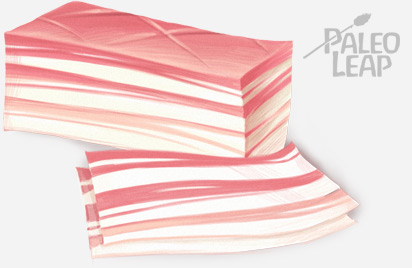 If you eat eggs from chickens that was free to graze on pastures, fed a natural diet, and not treated with antibiotics or growth hormones, and bacon that comes from a pig that was treated the same, both foods are very nutritious, satisfying and healthy.
If you eat eggs from chickens that was free to graze on pastures, fed a natural diet, and not treated with antibiotics or growth hormones, and bacon that comes from a pig that was treated the same, both foods are very nutritious, satisfying and healthy.
Egg yolks are full of nutrients such as lutein and zeaxanthin as well as omega-3 fat and generous amounts of dietary cholesterol (a good thing). Bacon is high in healthy saturated fat, which serves many functions in the brain, bones, lungs and just about every cell of the body. Healthy saturated fats should account fot about 40-50% of your calories.
Sodium in an essential nutrient and this is why we like it so much. It's a naturally occurring mineral found in plants and is required for the regulation of all cell functions. However, salt that's added to processed foods may have adverse effects because it throws off the delicate balance of sodium to potassium, so limit your intake of foods with an excess of added salt.
Nitrates are a natural compound found in almost all vegetables, but added nitrates in processed meats may have an adverse effect. If you're concerned about nitrates in bacon, you can easily find nitrate free bacon.
TOP OF PAGE
Is it a fad diet?
No.
This diet and lifestyle are based on the way we ate for more than two million years while enjoying great health. It's all about natural food you can find in nature, not expensive supplements or complex meal plans. It's actually about the farthest you can get from a fad diet and in this sense the Standard American Diet is really the fad diet (as the future may prove).
TOP OF PAGE
Caveman did more exercise and therefore could afford to eat like he did
It's true that caveman was more active than the average American today. However that wasn't his goal. Saving as much energy as possible was far more important for survival. He would therefore relax, nap and sleep as often as he could. This means that today's cardio addicts, who spend hours training on the treadmill, may be exercising much more than our average caveman.
The principles of a Paleo diet become even more important to the average American who doesn't move or exercise regularly, especially with regard to carbohydrates and insulin.
When you exercise a lot, you can afford to eat more carbohydrates in the form of fruits and vegetables because the glycogen (sugar) reserves in your liver and muscles are depleted more rapidly. When this is the case and you eat carbohydrates, the glucose replenishes the glycogen stores instead of being treated as extra unneeded sugar and sent to your fat cells by insulin.
Using this optic, an inactive person should eat even fewer carbohydrates than an active person. Sticking to the low carbohydrate principles of a Paleo diet are even more important to keep a balanced body composition and healthy metabolism.
TOP OF PAGE
Isn't sugar natural?
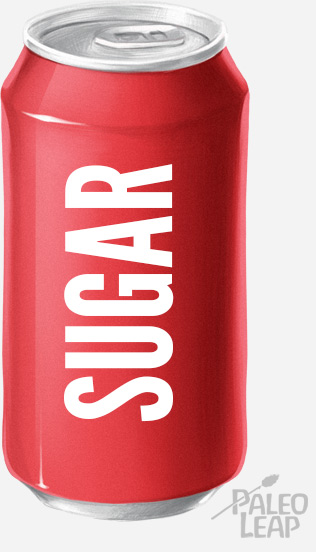 Sugar is natural, just like about any plant-based chemical. It becomes unnatural when it's made into a form, concentration or quantity that is not found in nature. Naturally sweet things like fruits are only available in season for a short time of the year in most places. Eating a lot of this rare macronutrient from fruits and tubers when it was available was a good idea. It allowed the caveman to fill himself with these end-of-summer foods to pack a little reserve of fat for winter when food was scarce. For him, getting a little fatter was a luxury that would allow him to increase his chances of survival.
Sugar is natural, just like about any plant-based chemical. It becomes unnatural when it's made into a form, concentration or quantity that is not found in nature. Naturally sweet things like fruits are only available in season for a short time of the year in most places. Eating a lot of this rare macronutrient from fruits and tubers when it was available was a good idea. It allowed the caveman to fill himself with these end-of-summer foods to pack a little reserve of fat for winter when food was scarce. For him, getting a little fatter was a luxury that would allow him to increase his chances of survival.
Most sweet things in nature come with loads of fiber, vitamins, water, antioxidants and phytonutrients. The water creates a satiating effect so you feel full. Fiber slows absorption which creates less of a sugar spike in the blood, and vitamins, antioxidants and phytonutrients prevent and repair oxidative damage (a natural byproduct of metabolism) at the cellular level.
Just try eating sugar right off a sugar cane and you'll see that it's so hard and fibrous that you won't be able to get your sugar fix.
TOP OF PAGE
Didn't caveman die very young, and if so why should we eat like him?
The notion that caveman died very young is one of those myths carried around by those without the benefit of real data. It's just part of the general zeitgeist and almost nobody questions it, a bit like the notion that saturated fats will clog your arteries.
In fact, people of the Paleolithic Era lived much longer than most people think.
In the Paleolithic, the median life expectancy is skewed because so many children died at birth or shortly thereafter. If you have a look at this article from Wikipedia, you'll learn that if somebody made it to 15 years old, his life expectancy would jump to 39 years old. Then, if he made it to 39, chances were good he would make it to 54 years old.
Only in the last century have we started to have a much longer life expectancy. We also saw a major decrease in life expectancy right around when agriculture was adopted massively. At some point, people were expected to live no more than 18 years. With agriculture came a lot of diseases, wars, famines, and inequalities.
The reason we live longer today is not because we have a better diet, but because people have access to medical assistance and urgent care. Most infectious diseases are now well controlled in developed countries. We are now also safe from the dangers of nature like predators, starvation and accidents which were the source of most deaths in the Paleolithic.
In the last century, we became really good at making people survive longer, but certainly not thriving. When caveman died of old age, he would be healthy and active up to the very end and we certainly can't say that of people today.
Without medical assistance, people with cancer, heart disease, diabetes, kidneys problems, liver problems and a host of other conditions would not survive for long and our life expectancy would be much shorter.
Also note that it has only been a few decades since we started cutting healthy saturated fats from our diet and increasing our consumption of sodas, vegetable seed oils and processed carbohydrates to disastrous levels. Experts have already predicted that the present generation will be the first to have a shorter lifespan then the generation before.
TOP OF PAGE
How can I stay Paleo when I eat out?
When traveling, dining out or going to visit some friends, you have a couple of options and your choice depends on your goals and your personality. If you're like me, you won't accept any kind of bad food, you'll be very strict about your choices at restaurants and your friends should already know about your diet or at least know that they should ask you beforehand. This is especially important if you really need to lose weight or if you're dealing with digestive problems or an autoimmune disease. In that case, just a bit of bad food could set you off in your progress.
At restaurants, simply tell the waiter that you have a serious gluten allergy and that any grain, not just wheat, is possibly fatal. Be serious about it and they'll know they have to make sure that nothing that has touched wheat will come in contact with your food. Ask for your meat and vegetables to be fried or cooked with olive oil or butter and not margarine or another vegetable oil. You can use the allergy strategy there too because it works very well. If you want to be even stricter, ask them not to season anything because black pepper and other commonly used spices can often contain traces of gluten.
When traveling and spending time where you don't have access to any good food like in airports, it's a good occasion to do some intermittent fasting. We think this is one area where intermittent fasting becomes really useful and will save you from bad food while you know very well you won't starve. Once you arrive at your destination you can then go out and buy some good food.
If you're not dealing with any serious health problem, eating out can also be your occasion to give yourself some slack and have a cheat meal. If you suspect you're sensitive to gluten, then we recommend you stay very strict about it and make sure you don't eat anything that might contain gluten. Just a little bit can do damage that'll last for a long time.
When visiting friends, you can prepare something yourself. This is a good opportunity to discuss your diet. You'll have something to fall back on and you can let your friends taste how good it is to eat healthy.
You can also explain to your relatives that you truly believe that the food you refuse is causing damage to your health and that it would be like smoking a cigarette just to fit-in.
TOP OF PAGE
Can I resume eating a normal diet once I reach my weight goal?
This is not recommended and Paleo is not simply a weight loss diet. Of course, you are free to live your life as you wish, but we strongly believe that if you give it enough time you won't want to go back because you'll see all the benefits and you'll feel much better.
When you become used to the food, you'll find it absolutely delicious. Also keep in mind that eating a Paleo diet is the single most important thing you could do for your future and the future of your children, if you have or plan to have any.
It's your chance to escape from the vicious circle of disease, weight-gain and medical costs. You children will have a better chance in life by being physically fit and mentally alert while cutting the risk of disease.
Be aware that once you've become sensitive, a single serving of food containing gluten or a huge insulin spike will do some long-term damage. Hydrogenated and partially-hydrogenated fats as well as trans fats and vegetable oils will do some damage whether you have a prior sensitivity or not.
Following the diet only for a limited period of time is certainly good for your health, but we think that now that you've been exposed to the truth about food it's your duty not to deny or ignore it.
Finally, some of the benefits and weight loss will only happen much later in your journey once your gut is completely healed, your hormones are all balanced and you have plenty of the essential vitamins and minerals.
TOP OF PAGE
Isn't too much protein bad for the kidneys?
 That has been proven to be completely wrong and is probably a fact that's being pushed by proponents of vegetarianism or veganism in an effort to demonize animal proteins. There is no scientific evidence behind that claim.
That has been proven to be completely wrong and is probably a fact that's being pushed by proponents of vegetarianism or veganism in an effort to demonize animal proteins. There is no scientific evidence behind that claim.
A buildup of proteins in the urine is the result of proteins that pass through the kidney's filters without being processed, not simply by eating meat. This is most often the result of environmental or external conditions such as heat, cold, stress, exercise, and drugs. It can also be caused by conditions such as kidney disease, heart disease, diabetes, high blood pressure, and leukemia, to name a few.
Vilhjalmur Stefansson and his team were monitored during a year of eating almost exclusively meat and animal fat and their kidneys didn't have any problems. In fact, after a short adaption to the higher protein load, the kidneys were working just as well, and this was the case for the duration of the study.
Remember that a Paleo diet is not necessarily high in protein, but rather high in fat. In fact, most people eating a Paleo diet don't eat much more protein then someone eating a standard American diet.
TOP OF PAGE
Can excess protein lead to more uric acid and gout?
It's true that excess uric acid can lead to gout. Purines are found in all cells and in almost all foods. They're part of the makeup of genes in both plants and animals. Uric acid is a byproduct of purine metabolism. High protein foods such as meats contain higher amounts of purines and therefore will create higher amounts of uric acid in the blood when eaten. The kidneys are a filter through which uric acid passes on its way to elimination. If the kidneys don't get enough water, the uric acid can become concentrated in other parts of the body, forming a gouty arthritis that usually clears up in a few days if given enough water.
In this optic, eating more protein than that found in a standard American diet and eliminating fructose (found in sodas, many baked goods and packaged products with high-fructose corn syrup) should actually reduce the uric acid load in your blood because the kidneys will not have to process this non-food.
TOP OF PAGE
What about fiber, don't we need it?
It is unlikely that we would need more fiber than what we've been getting for the last couple million years from nature with a regular consumption of fruits and vegetables.
We also know that we can thrive without fiber as proved by cultures that thrive on meat and fat only.
In fact, if you eat an excess of insoluble fiber from all the whole grains recommended on a standard American diet, the fiber will actually do real mechanical damage to the colon. More water will be taken from the rest of the body and sent to soothe the damage, which will help the stools to pass. This is certainly not a situation we want to be in.
Gut Sense goes into detail about this and explains how our colon becomes addicted after a while to all the fiber. They also explain that it will take some time and adaptation on a regular, more natural diet, for the stools to regulate without the heavy fiber load.
Some people will argue that insoluble fiber is useless and that it only adds satiety when it could be replaced by more nutritive meat or fat.
We think that there's certainly some truth in that, but regular amounts of fiber has been proven to be useful for a couple of reasons concerning the gut flora. Good gut flora will ferment the fiber and produce vitamin K2 and butyric acid which are two factors of good health. Those two nutrients are also found in pastured butter for those interested in getting more.
With that being said, note that the creation of those nutrients will only happen if your good gut is healthy. If bad bacteria has gained more power, more fiber will only feed it aggravate the problem. This is why insoluble fiber can be a double-edged sword.
As we think that most people coming from a standard western diet don't have an optimal gut flora, it would be a good idea not to consume excess fiber and to have large and diverse sources of probiotics to help rebuild the good flora before having more fiber.
The vegetable world offers plenty of fiber (i.e. roots and tubers). Did you know that avocados are a very high source of fiber? The fiber in those vegetables is often soluble fiber, contrary to the promoted insoluble fiber which can cause damage.
It is believed by many that the origin of the myth that a lack of fiber is the source of many problems comes from a need to explain why traditional cultures are healthy while we're not. Governments then simply told the population to cut white sugar and flour and to eat more whole grains and that everything is going to be fine, but the problem is multidimensional and much more complex. While it's true that it's better to eat whole fruits because the fiber slows the absorption of the sugar, which diminishes the insulin spike, it doesn't make grains a healthy choice, no matter the amount of fiber.
TOP OF PAGE
Didn't the China study prove that animal protein is bad?
The China Study by T. Colin Campbell seems to be the singular piece of work most vegetarians take as their bible to reassure themselves that they are doing the right thing and that everybody else is doomed.
The study itself has been debunked multiple times by multiple people and recently greatly analyzed and criticized in detail by Denise Minger.
In a few words, Campbell is accused of having cherry picked his data to prove his theory and plenty of contradictory data was available to him. He also experimented with feeding mice casein (one of milk's proteins) and found out that they were getting cancer. He then extrapolated and concluded that all animal protein is cancer promoting. This is a major scientific mistake. It's widely accepted that casein causes problems for many people and this is a reason why dairy is not encouraged on Paleo.
The China study didn't prove at all that animal proteins are bad.
TOP OF PAGE
Should mercury and other toxins in fish be a concern?
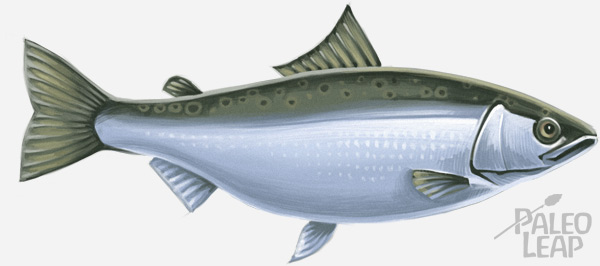
While it's true that fish contains levels of mercury, dioxins and PCBs, the concern has been greatly overemphasized and it turns out that fish is very safe to eat, even in high quantity. In fact, fish offers so many health promoting factors including the famous omega-3 fatty acids that not eating fish is actually a bad idea.
First of all, we have a natural ability to cope with a certain amount of mercury because fish has always contained some amount, even before we came and changed the ecosystem. This is in part due to levels of mercury in the sea because of volcanoes. This might be why most fish contains large amounts of selenium, which effectively binds with mercury and prevents it from binding to other cells like brain cells.
Eating fish high in selenium protects us as well and the selenium cancels the mercury. As long as we eat fish that is higher in selenium than mercury it's completely harmless for us.
Only a few types of commonly eaten fish have a higher level of mercury than selenium: some types of shark, marlin, swordfish, tarpon and pilot whale. Other fishes are safe to eat and very healthy.
As for PCBs and dioxins, which are other toxins found in fish, you should know that levels of those toxins are much higher in conventionally raised meat, dairy and vegetables. The antioxidant and anti-inflammatory protection of fish also protects us against the effects of those toxins.
Refer to this poster by the Western Pacific Fishery Management Council as well as this article by Chris Kresser of the Healthy Skeptic blog for a more in-depth explanation.
TOP OF PAGE
Aren't ketogenic diets dangerous?
Your body will go into a state of ketosis when your glycogen stores (glucose in the body) are depleted and your body doesn't have enough glucose for energy. It will then produce ketone bodies from fat as a source of energy. If you eat less than about 50g of carbs per day for a period of time or if you fast, you will go into a state of ketosis.
Some people argue that this is a dangerous, emergency and starvation-like state, but this is completely false.
First you have to make the distinction between ketosis and ketoacidosis. Ketoacidosis is a serious and possibly fatal condition that some diabetics can develop where sugar and ketone bodies get extremely high in the blood because their cells can't absorb any of them for energy. This creates a blood that is too acidic and is very dangerous and requires emergency assistance.
Ketosis is a normal state and can even be considered the default state of human beings. For millions of years, most humans on the planet were in ketosis more often than not. It's only when they had access to more fruits and tubers that their bodies would run on glucose instead of ketone bodies.
Everybody frequently goes in ketosis during the night because of the fasting.
Some will argue that while most cells can use ketone bodies as a source of energy, some brain and kidney cells absolutely need glucose for energy. While this is true, the body can easily make glucose for these cells with proteins by a process called gluconeogenesis. Therefore, those who say that a very low carb or zero carb diet is dangerous and unsustainable are wrong.
It has been shown that ketone bodies are the preferred source of energy for most cells and that there are some protective and health promoting effects to being in ketosis.
Since you use stored and dietary fat for energy while in ketosis and the body becomes very efficient with running on fat, you easily stay lean and have a steady flow of energy.
You can use small paper strips available in drugstores to test your urine for the presence of ketone bodies. Some people on a low carb diet will be very happy to see that they are in ketosis for what it means in terms of fat loss. They will then lose their enthusiasm when they see less and less ketone body concentration on those urine testing strips. This doesn't mean that you're not in ketosis anymore, but that your body is really fat adapted and that less ketone bodies are wasted.
TOP OF PAGE
If we are to eat like our ancestors, shouldn't we eat raw meat?
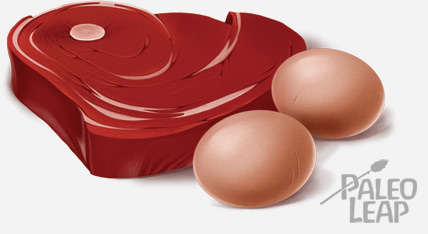 There are diverse opinions on that matter and a subcategory of Paleo adherents only eat raw meat, but we think that the best diet would include both raw and cooked meat. We have evidence of early humans cooking their meat dating millions of years ago and it only makes sense that we started using fire to cook our food. In fact, cooking is one of the ways that permitted us to develop such big brains. Fire and cooking helped us become what we are today compared to other animals. We can also link the beginning of cooking around the same time our brain started getting bigger.
There are diverse opinions on that matter and a subcategory of Paleo adherents only eat raw meat, but we think that the best diet would include both raw and cooked meat. We have evidence of early humans cooking their meat dating millions of years ago and it only makes sense that we started using fire to cook our food. In fact, cooking is one of the ways that permitted us to develop such big brains. Fire and cooking helped us become what we are today compared to other animals. We can also link the beginning of cooking around the same time our brain started getting bigger.
The brain was able to get more energy at the expense of our digestive system. Our brain utilizes up to 25% of our energy and this is unheard of in other species. Cooking made food easier to digest and uses less energy. Cooking could be seen as a form of predigestion so food becomes more bioavailable. So even though cooked food sometimes contains fewer nutrients, it's easier to absorb and to digest which greatly compensate.
With that being said, raw meat certainly has its place in our diet. It makes sense to think that even though early humans started cooking their meat, it was probably very gradual and was probably sometimes cooked, sometimes raw for hundreds of thousands of years before it became cooked more often than not. Vitamin B6 gets almost completely destructed by cooking and this is a reason having raw meat, at least occasionally, is a generally good idea.
Grilling meat creates AGEs (Advanced glycation end product) which is the same thing that causes our cells to experience oxidative damage. Note that the worst offenders for AGEs in our bodies are excess sugars and especially fructose, not overly cooked meat. We think it would still be a generally wise idea to cook meat with methods that don't produce much AGEs like slow-cooking, poaching, stewing or braising. On the flip side, we think that healthy people already eating a good Paleo diet have a lot of systems working in their favor to reduce or cancel the oxidative effects of AGEs. Our ancestors probably didn't cook with anything too fancy so it's a good bet to think that he often ate meat that was a little burned, but their bodies were well-prepared to cope with it.
An optimal diet would include both cooked as well as raw meat. If raw meat seems a bit too much to you, consider having raw fish and making homemade sushi. If you decide to eat raw meat, make sure it comes from a trusted source and an animal that was pastured and grass-fed. Some people decide to freeze it for a period of time to make sure that it's sterile. Ask your butcher or farmer about it so you make an informed decision. There is nothing wrong with raw meat when it's from a reliable and natural source. You can also decide to eat you steaks only very lightly cooked and still rare in the middle for the best of both worlds.
TOP OF PAGE
Are there any good books I can read about the subject?
Some great books were written on the subject in the last few years and I'll name a few of the most important ones here.
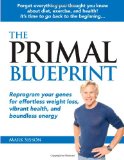 The Primal Blueprint by Mark Sisson would be, in my opinion, the best book to start with. It aligns perfectly with the values of Paleo and also covers subjects like supplements, lifestyle and fitness. A lot of information available in this book is available online on this site as well as at Mark Sisson's MarksDailyApple.com, but it's great to have it all organized in a convenient and accessible book.
The Primal Blueprint by Mark Sisson would be, in my opinion, the best book to start with. It aligns perfectly with the values of Paleo and also covers subjects like supplements, lifestyle and fitness. A lot of information available in this book is available online on this site as well as at Mark Sisson's MarksDailyApple.com, but it's great to have it all organized in a convenient and accessible book.
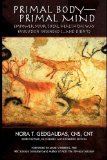 Primal Body Primal Mind is an interesting book by Nora Gedgaudas that takes a slightly different angle than Mark Sisson and focuses on longevity instead of completely following what our ancestors did. Nothing too drastic though, but she advocates even more fat and a little less protein. Another very interesting book.
Primal Body Primal Mind is an interesting book by Nora Gedgaudas that takes a slightly different angle than Mark Sisson and focuses on longevity instead of completely following what our ancestors did. Nothing too drastic though, but she advocates even more fat and a little less protein. Another very interesting book.
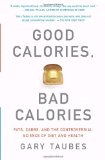 Good Calories Bad Calories by Gary Taubes is for me the book that started it all. Gary successfully wrote a book that became mainstream and that defies the current misconceptions about obesity, heart disease and type 2 diabetes as related to saturated fat, cholesterol and carbohydrates. While being quite a large book and not necessarily an easy one to go through, it is really a foundation of knowledge and scientific proof behind the concepts brought forward by Paleo. It's the kind of book that has the potential to influence the scientific community in a good way.
Good Calories Bad Calories by Gary Taubes is for me the book that started it all. Gary successfully wrote a book that became mainstream and that defies the current misconceptions about obesity, heart disease and type 2 diabetes as related to saturated fat, cholesterol and carbohydrates. While being quite a large book and not necessarily an easy one to go through, it is really a foundation of knowledge and scientific proof behind the concepts brought forward by Paleo. It's the kind of book that has the potential to influence the scientific community in a good way.
While not being geared towards a Paleo diet or an easy guide to kick start your journey, it provides very good information to refute anybody who argues with you about nutrition and to bring to your doctor with the hope he'll read it and "get the facts".
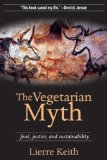 The Vegetarian Myth by Lierre Keith is one that goes deep in the subject of vegetarianism and veganism as related to health and environment. Keith, who damaged her health after being vegan for more than 20 years, is very convincing as to why a plant only diet is not a good choice for us or the planet. A good read to also put in the hands of your vegetarian friends.
The Vegetarian Myth by Lierre Keith is one that goes deep in the subject of vegetarianism and veganism as related to health and environment. Keith, who damaged her health after being vegan for more than 20 years, is very convincing as to why a plant only diet is not a good choice for us or the planet. A good read to also put in the hands of your vegetarian friends.
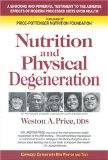 Nutrition and Physical Degeneration by Weston A. Price, which is also available online here should be a required reading for everybody and has helped open the eyes of a lot of people who turned Paleo about the value of eating a traditional diet. Weston A. Price was a dentist in the 1920s and 1930s who observed a lot of groups eating a traditional diet as well as some groups in the process of transitioning to a more westernized diet. After reading a book like that, you can't deny the truth about nutrition anymore, no matter how today's dogma tries to stick with you. Today, the work of Weston A. Price is preserved and promoted by the Weston A. Price Foundation lead by Sally Fallon Morell, who wrote Nourishing Traditions, another great book.
Nutrition and Physical Degeneration by Weston A. Price, which is also available online here should be a required reading for everybody and has helped open the eyes of a lot of people who turned Paleo about the value of eating a traditional diet. Weston A. Price was a dentist in the 1920s and 1930s who observed a lot of groups eating a traditional diet as well as some groups in the process of transitioning to a more westernized diet. After reading a book like that, you can't deny the truth about nutrition anymore, no matter how today's dogma tries to stick with you. Today, the work of Weston A. Price is preserved and promoted by the Weston A. Price Foundation lead by Sally Fallon Morell, who wrote Nourishing Traditions, another great book.
TOP OF PAGE
How much fat, proteins and carbs should I eat?
This is the million dollar question and it's certainly very understandable that one would like to get and follow a magic ratio of carbs, protein and fat.
Unfortunately (or fortunately), there is no magic number to give and everyone promoting Paleo will promote something slightly different or a range to play with.
This makes sense because we all have different needs in relation to our health condition, personal preferences, fitness condition and goals. Our ancestors also ate various macronutrient levels depending of the food available, the preferences and the climate. For these reasons, a one size fits all diet in terms of macronutrients like fat, protein and carbohydrate is probably not a good idea.
The simplest way to do it is to eat what feels natural while including lots of healthy animal fat, animal protein and vegetables as well as some optional fruits and nuts. What we like to promote is to eat high fat, moderate protein and low to very low carb (focusing on vegetables). Carbs, in the form of vegetables, fruits and tubers can be eaten in larger quantity by someone who tolerates them well or who needs the energy for long distance and endurance sports. Higher carbs, even from natural sources, are often the cause of difficulty losing fat or to healing from an autoimmune disease, and people suffering from those or who are already insulin resistant from their previous diet could benefit from having minimal amounts of carbs.
Even zero carb can prove to be very beneficial when you take care to eat high quality meat, lots of fat, fish, and organs, and cook with bones (stocks and marrow). It can be a real lifesaver when trying to heal a damaged gut, but shouldn't be followed just to feel "pure" about not eating carbs like some vegetarians do about not eating meat.
If we take Mark Sisson's carb recommendations, which are very reasonable, one could eat between 100 and 150 grams of carbs per day for maintenance, between 50 and 100 grams for moderate fat loss and less than 50 grams for accelerated fat loss. You'll see that 150 grams of carbs represents a lot of fruits and vegetables, enough to satisfy those who dislike the idea of a very low carb diet.
As for proteins, the recommendations vary between 0.7 grams per pound of lean body weight mass per day to 1g of total body mass per day. On the low end, an individual who weighs 180 pounds and has a lean body mass of 160 pounds would eat around 112 grams of protein per day and 180 grams a day in the high end of the recommendation. Those recommendations take into account preservation and gain of lean muscle mass. We would say that if you fall anywhere between this range, you are in the sweet spot for your daily protein need.
As for fat, you should probably have as much as you want and it should be your main macronutrient intake. One easy strategy is to cover your bases in terms of protein and carbs and consume the rest of your calories from fat. Eat until you're not hungry anymore and don't count calories.
With all that being said, we want to reiterate the importance of not stressing over macronutrient intake. Don't start calculating everything. Unless you're dealing with a specific problem, Paleo should be all about simplicity and flexibility.
TOP OF PAGE
Should I take supplements?
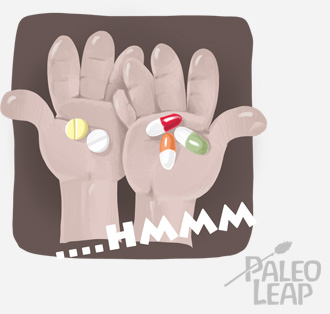 This is a subject where opinions are very diverse, but I'll give you my general recommendations. Read the article on supplementation for more details.
This is a subject where opinions are very diverse, but I'll give you my general recommendations. Read the article on supplementation for more details.
Unlike other diets, Paleo is a nutrition-dense diet and gives you all the nutrients you need for good health. After all, our ancestors didn't need any kind of pills to stay on top of their game.
It goes without saying that some supplements might be in order if you have a specific condition or deficiency.
In my opinion, taking a multivitamin when following the diet is not only wasting your money, but can also have adverse effects.
We are often still victims of hectic lifestyles, lack of sleep, excess stress, polluted air, less than optimal sources of meat and produce as well as a lack of sun exposure. A lot of us are also recovering from years of bad eating and metabolic syndrome. For those reasons, vitamin D, fish oil and probiotic supplements might be very beneficial.
Vitamin D is for supplementing what you would normally get from regular sunlight exposure. If you work indoors or live in a northern country, we recommend between 1,000 and 4,000 IU per day of vitamin D3.
Fish oil is for supplementing your omega-3 fatty acid consumption which comes in handy if you consume lots of nuts and seeds or conventionally raised meat and don't consume fatty wild caught fish like salmon and sardines on a regular basis. We recommend one to two grams of very high quality fish oil per day in this case.
Probiotics are good bacteria and are important for the health of your gut flora. An unhealthy gut flora is the source of many of the diseases of civilization. Take care of your gut flora and it will take care of you. We recommend to anyone regular consumption of fermented foods like lacto-fermented vegetables (e.g. sauerkraut) or raw and fermented dairy (e.g. yogurt and cheese). For those recovering from their previous diet, trying to lose weight, having external sources of stress or lack of sleep or for those dealing with an autoimmune disease or digestive problem, a high-quality, high-potency, multi-strain probiotic supplement is beneficial in addition to fermented food. Get as much as you can.
TOP OF PAGE
Is there an adaptation period to the diet?
Yes, a short adaptation period of 3 to 4 weeks as you start eating fewer carbs and your body adapts to using fat as a fuel source is to be expected. This will be even more noticeable if you eat a very low carb, ketogenic, diet. This happens when you eat less than about 50 grams of carbs per day. For those first few weeks you might feel lightheaded, have low energy or be a little shaky and irritable.
As soon as your body gets used to using fat as an energy source, those symptoms will go away and you'll have more energy than ever.
Those that lose a lot of fat rapidly might experience detoxification symptoms because the toxins that were stored in their fat calls get released in the bloodstream rapidly. This is rarely much of a problem other than mere discomfort.
If you're concerned about the adaptation period, the best way is to transition to the diet slowly or slow down when you feel the effects of the adaptation. None of the symptoms of adaptation are dangerous and there is no need to limit them if you're ready to handle them.
TOP OF PAGE
How Much Fat Should You Consume on Paleo Diet
Source: https://paleoleap.com/paleo-diet-faq/